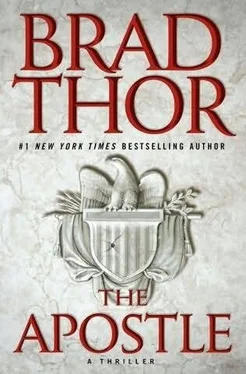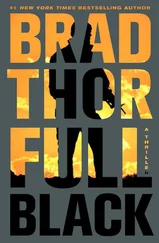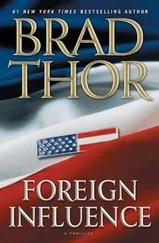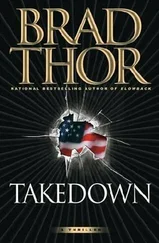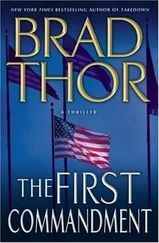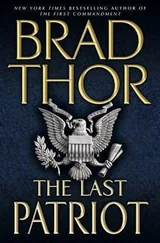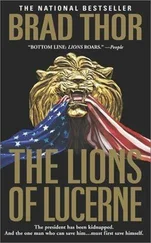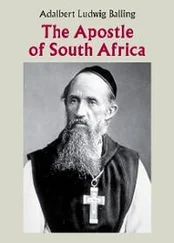Brad Thor - The Apostle
Здесь есть возможность читать онлайн «Brad Thor - The Apostle» весь текст электронной книги совершенно бесплатно (целиком полную версию без сокращений). В некоторых случаях можно слушать аудио, скачать через торрент в формате fb2 и присутствует краткое содержание. Жанр: Триллер, на английском языке. Описание произведения, (предисловие) а так же отзывы посетителей доступны на портале библиотеки ЛибКат.
- Название:The Apostle
- Автор:
- Жанр:
- Год:неизвестен
- ISBN:нет данных
- Рейтинг книги:5 / 5. Голосов: 1
-
Избранное:Добавить в избранное
- Отзывы:
-
Ваша оценка:
- 100
- 1
- 2
- 3
- 4
- 5
The Apostle: краткое содержание, описание и аннотация
Предлагаем к чтению аннотацию, описание, краткое содержание или предисловие (зависит от того, что написал сам автор книги «The Apostle»). Если вы не нашли необходимую информацию о книге — напишите в комментариях, мы постараемся отыскать её.
The Apostle — читать онлайн бесплатно полную книгу (весь текст) целиком
Ниже представлен текст книги, разбитый по страницам. Система сохранения места последней прочитанной страницы, позволяет с удобством читать онлайн бесплатно книгу «The Apostle», без необходимости каждый раз заново искать на чём Вы остановились. Поставьте закладку, и сможете в любой момент перейти на страницу, на которой закончили чтение.
Интервал:
Закладка:

Brad Thor
The Apostle
The eighth book in the Scot Harvath series, 2009
For James Ryan,
Warrior
People sleep peaceably in their beds at night only because rough men stand ready to do violence on their behalf.
– George Orwell
CHAPTER 1
NANGARHAR PROVINCE, AFGHANISTAN
Next to a stream of icy snowmelt from the Hindu Kush, a small caravan unloaded its contraband. Cases filled with weapons, money, communications equipment, and other gear were placed beneath a rocky overhang and covered with camouflage netting to keep them concealed from overhead surveillance.
A man in his late forties with deep Slavic features stood nearby and supervised. He had blue eyes, medium-length gray hair, and both the clothing and bearing of a local Afghan.
When his team of Pakistani smugglers was done, the man removed a stack of bills and paid them double what he normally did for bringing him into the country. It was a severance package. He wouldn’t be using them again. This was going to be his final operation.
He made himself comfortable near a stack of rams’ horns that marked a Taliban grave site and watched as the line of smugglers and pack animals disappeared back into the mountains toward Pakistan. Though he couldn’t spot them, he knew there were men in the rugged hills above, men with sophisticated weapons-weapons he had provided to them-who were keeping him in their sights.
Twenty minutes later, three muddy Toyota Hilux double-cab pickup trucks appeared from the other end of the valley. The convoy splashed across the fast-moving stream and drove up to the overhang. As the trucks rolled to a stop, young men with thick, dark beards and Kalashnikovs jumped out.
Like the man next to the rams’ horns, they were dressed in traditional Afghan clothing known as salwar kameez-baggy cotton trousers that stopped just above the ankle and loose-fitting tunics that ended just above the knee. They all wore winter coats that came to midthigh. Many slung warm wool blankets referred to locally as patoos over their shoulders to further ward off the cold. Upon their heads they wore pakols, the wide wool hat encircled by a thick, rolled brim made famous by the mujahideen during their war with the Soviets.
The men worked quickly and efficiently. Once the gear was loaded, the blue-eyed man climbed into the front passenger seat of the lead vehicle, the driver popped the clutch, and the truck lurched forward.
It was a painful, kidney-jarring ride along a rutted road that followed the snowmelt downstream into the valley. As the truck came down hard into yet another pothole, the men in the backseat erupted in a barrage of Pashtu curses.
The blue-eyed man tuned them out and stared through the spattered windshield. The landscape outside was windswept and barren. It was hard for him to believe that he had been fighting and running operations in this country for over twenty-five years. His blood had been spilled upon its soil on more occasions than he cared to remember and he had watched more men die than anyone ever should.
He loved and hated Afghanistan at the same time. It had taken far more from him than it had ever given. His body was in shambles, as was the small family he had managed to begin over the years during his short visits home. All he was left with in his life was a sweet, innocent boy who had been terribly disfigured.
The blue-eyed man blamed himself. He had known about his wife’s alcoholism. He also knew that it grew worse when he was away. Even though he’d been trained to listen to his intuition, he had ignored it when it told him that the woman could no longer properly see to their child. Had he made other arrangements for the boy, had he found a responsible caregiver to see to him while he was away, the fire might never have happened.
But it had happened, and the father wore the guilt of his son’s disfigurement across his shoulders much like the patoos across the shoulders of the Taliban fighters now riding alongside him.
He tried to forget his pain and to instead focus on his mission. It was one of the most audacious operations his intelligence service had ever considered. If it was successful, he could finally retire and would be so highly rewarded that he and his son would never want for anything else. That success, though, ultimately rested with the man he was about to meet. In the near distance, his destination finally came into sight.
The village, in Nangarhar’s rugged Khogyani district, was mostly mud houses, with some made of stone, which were set along either side of the road.
It was austere and colorless, as much of Afghanistan was. Window and door frames were unpainted. Rough-hewn beams jutted out from beneath rooftops, and none of the buildings were more than two stories tall. Dust and children and hard-looking men with guns were everywhere. No women were visible.
They were there, of course; hidden behind the thick mud walls of their houses by Taliban husbands and fathers who forbade them to work, to go to school, or even to go outside without being completely covered and with a male family member accompanying them.
The convoy ground to a halt before a high wall set with two massive double doors. The driver of the lead vehicle tapped his horn three times in quick succession. A small panel opened in the gate and a pair of angry dark eyes peered out. Moments later the doors swung open and the convoy rolled into a typical Afghan compound known as a kwala.
When the blue-eyed man climbed out of the truck, he was greeted by one of the Taliban’s most notorious, battle-hardened commanders. Mullah Massoud Akhund stood about five-foot-eight, a good three inches shorter than the blue-eyed man, but he had a commanding presence.
Massoud’s eyes were the color of flint and possessed with the power to look right through a man. His heavy black beard was streaked with gray. He was only in his late forties, but a life of incessant combat had aged him beyond his years, giving him the appearance of a man twenty years older.
Placing his right hand over his heart in the traditional Afghan greeting, Mullah Massoud nodded slightly to his guest and said, “Salaam alaikum.”
The blue-eyed man performed the same gesture and replied, “Wa alaikum salaam.”
Massoud embraced his guest and held him tightly for many moments. The blue-eyed man had learned early in his career that a hug from an Afghan man was a sign of respect. The longer the embrace, the deeper the respect you were held in.
Finally, the commander broke off the hug. “It is good to see you again, Bakht Rawan.”
CHAPTER 2
Many suspected that the blue-eyed man was Russian, but it was a topic Mullah Massoud did not like to discuss. There were still dormant animosities, even in his own village, over the long and bloody war the Afghans had fought with the Soviets. For this reason, Massoud addressed the man as Bakht Rawan and not by his given name of Sergei Simonov.
Their relationship stretched back more than twenty years. Before Massoud had joined the Taliban, he had been a fledgling Afghan intelligence operative and Simonov had been his mentor. His code name was Pashtu and meant “running luck,” something Massoud felt his mentor possessed in abundance.
The pair politely inquired into each other’s health, families, and affairs as Massoud gave orders to his men to unload the trucks. He then motioned for Simonov to follow him inside.
The Russian removed his hiking boots at the door and followed his host. The room was spartanly furnished with two long tables, a low bed, a small wooden desk, and a single chair. It would be more than adequate.
Читать дальшеИнтервал:
Закладка:
Похожие книги на «The Apostle»
Представляем Вашему вниманию похожие книги на «The Apostle» списком для выбора. Мы отобрали схожую по названию и смыслу литературу в надежде предоставить читателям больше вариантов отыскать новые, интересные, ещё непрочитанные произведения.
Обсуждение, отзывы о книге «The Apostle» и просто собственные мнения читателей. Оставьте ваши комментарии, напишите, что Вы думаете о произведении, его смысле или главных героях. Укажите что конкретно понравилось, а что нет, и почему Вы так считаете.
